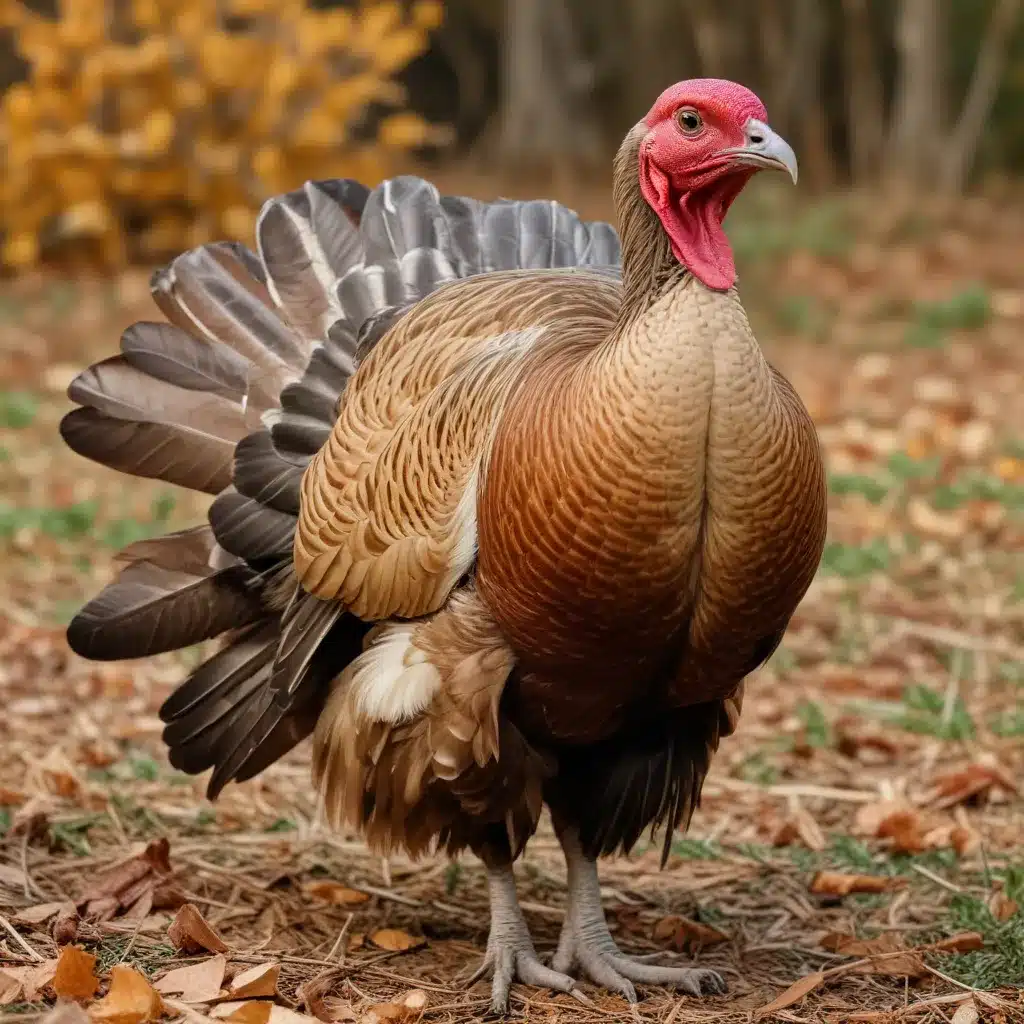
Turkeys are a staple of the Thanksgiving feast, but did you know these impressive birds make wonderful additions to the family farm as well? At Crooked Pines Farm, we’ve had the pleasure of welcoming several heritage turkey breeds into our flock, and the experience has been nothing short of delightful. From their amusing antics to their impressive parenting skills, these feathered friends have become an integral part of our farm life.
Poultry Farming
Turkey Breeds
While the broad-breasted turkeys found in grocery stores are bred primarily for meat production, heritage turkey breeds like the Bourbon Red, Narragansett, and Royal Palm are prized for their unique personalities and stunning appearances. These heritage varieties are often slower growing but boast rich, flavorful meat and the ability to reproduce naturally.
At Crooked Pines, we’ve fallen head over heels for our Royal Palm turkeys. This breed, first spotted in Florida in the 1920s, is known for its striking white and black plumage and friendly, inquisitive nature. Our tom, Tom, and hen, Gisele, have become true members of the family, greeting us with their distinctive gobbles and strutting around the farm in their regal fashion.
Turkey Housing and Equipment
Turkeys require more space than chickens, with each bird needing around 20 square feet of outdoor access and 4-6 square feet of coop space. Their housing should be well-ventilated, predator-proof, and equipped with sturdy roosting poles and large nesting boxes near the ground. We’ve found that turkeys often prefer sleeping outside, so an enclosed run is ideal.
Proper bedding is essential, and we make sure to keep their living quarters clean and free of excess moisture. During the colder months, we supplement their bedding with extra hay to help insulate against the elements.
Turkey Nutrition and Health
Turkeys are hearty eaters, consuming up to 50% of their diet from foraged grasses and other vegetation. Supplementing their grazing with a high-protein feed, complete with preventative medications, is crucial for their growth and development. We’ve had great success feeding our flock a starter feed with at least 28% protein, transitioning to a grower formula around 6 weeks of age.
Maintaining excellent turkey health involves vigilant monitoring for signs of illness, regular deworming, and keeping their living space clean. Diseases like blackhead, which can be transmitted from chickens, are a serious concern, so we keep our turkey and chicken flocks strictly separated. Consulting with a local veterinarian is essential for developing a comprehensive health plan.
Turkey Lifecycle
Brooding and Rearing Poults
Raising turkey poults, or babies, requires patience and attention to detail. Newly hatched poults need a warm, draft-free brooding area, with temperatures gradually decreased over the first few weeks. We provide ample space, clean bedding, and a high-protein starter feed to support their rapid growth.
Growth and Development
As the poults mature, their feed ration can be adjusted to a grower formula, and they’ll gradually be introduced to the great outdoors. Turkeys are remarkably clever birds, and we’ve been delighted to witness their developing personalities. Our tom, Tom, has proven to be a devoted protector, shielding his young under his wings at the first sign of danger.
Breeding and Reproduction
Heritage turkeys tend to reach breeding maturity around 7-8 months of age. The hens will begin laying eggs, which can be collected for both hatching and culinary purposes. We’ve found that providing nesting boxes at ground level encourages natural brooding behavior. Witnessing our turkeys’ parenting instincts in action has been a true joy.
Turkey Behavior and Welfare
Natural Behaviors
Turkeys are fascinating to observe, with a wide range of captivating behaviors. From their iconic courtship dances to their distinctive vocalizations, these birds are a constant source of entertainment on the farm. We’ve even noticed Tom and Gisele developing strong bonds with our younger farm visitors, who delight in offering treats and watching the turkeys’ antics up close.
Enrichment and Environment
To ensure our turkeys’ well-being, we strive to provide a stimulating, natural environment. In addition to their spacious run and coop, we’ve created areas for dust-bathing, foraging, and perching. Offering a variety of fresh vegetation, scratch grains, and the occasional treat of mealworms or frozen summer treats helps keep our flock engaged and content.
Stress Management
Turkeys are especially sensitive to stress, which can impact their health and productivity. We’re mindful of minimizing disruptions, keeping handling to a minimum, and allowing our birds to express their natural behaviors. By creating a calm, low-stress environment, we’ve fostered a flock of confident, well-adjusted turkeys.
Turkey Processing and Products
Meat Production
While our heritage turkeys aren’t raised primarily for meat, we do set aside a few birds each year for the Thanksgiving table. We take great pride in providing our family and community with naturally raised, flavorful turkey that far surpasses the quality of commercially produced birds. The slow-growing nature of these breeds results in a tender, succulent texture.
Egg Production
In addition to their impressive meat, heritage turkeys are excellent egg layers. Our hens provide us with a bounty of rich, golden-yolked eggs that are perfect for baking, custards, and more. We’re always delighted to share our turkey eggs with visitors and fellow Crooked Pines Farm enthusiasts.
Feather Utilization
Beyond food, turkeys offer valuable byproducts. Their striking feathers can be used in a variety of craft projects, from decorative wreaths to unique hair accessories. We love incorporating these natural elements into our DIY workshops and family activities.
Whether you’re interested in raising turkeys for their meat, eggs, or simply for the joy of their companionship, these magnificent birds are a wonderful addition to any family farm. At Crooked Pines, we’re proud to showcase the beauty and diversity of heritage turkey breeds, and we encourage you to consider welcoming these feathered friends into your own flock. To learn more about our turkey-tastic adventures, be sure to visit crookedpinesfarm.com!


